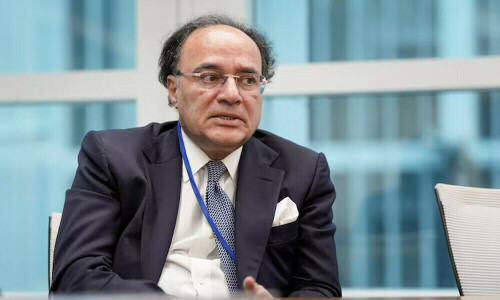Government Aims for Export-Driven Growth in Upcoming Budget
Finance Minister Muhammad Aurangzeb stated on Tuesday that the government intends to develop the upcoming federal budget for fiscal year 2025-26 as a strategic blueprint. This blueprint will synchronize fiscal aims with the wider goal of achieving sustainable growth propelled by exports.
The finance minister articulated these points during a session with prominent exporters and business leaders. This group was headed by Shabbir Diwan, previously Chairman of the Pakistan Business Council (PBC), as detailed in a statement issued by the Finance Division.
According to the statement, the meeting was a component of the government’s ongoing engagement with stakeholders in the business and industrial sectors. The federal government is scheduled to unveil the budget for the upcoming fiscal year on June 2.
During the meeting, Aurangzeb emphasized that growth driven by exports is not merely a high priority but the singular viable strategy for ensuring Pakistan’s economic stability and long-term sustainability.
He commented that every sector of the economy must play a role, emphasizing that increased efficiency and globally-focused policies are crucial if Pakistan wishes to escape its pattern of economic booms and busts and avoid needing a 25th program with the International Monetary Fund (IMF).
He restated that the current protectionist system needs to be taken apart to foster market-based competitiveness. He added that the time for unnecessary protection needs to end and the prime minister is directly leading meetings to promote this change.
The minister also noted that tackling fundamental obstacles—such as significant borrowing expenses, elevated energy costs, and an overly complicated taxation system—is vital for helping the domestic industry become competitive and guiding the nation toward greater efficiency and export-led expansion.
The discussion included the government’s Tariff Rationalisation Program, which seeks to eliminate irregularities and inconsistencies that impede business activities.
Diwan expressed support for the government’s initiatives and shared insights from the private sector on enhancing policy consistency and predictability.
Aurangzeb gave assurances that all feedback from stakeholders will be taken into account when formulating the next round of reforms. He underscored the necessity of cooperation between the public and private sectors to establish a robust, productive, and globally connected economic structure.



Comments (0)
No comments yet. Be the first to comment!
Leave a Comment